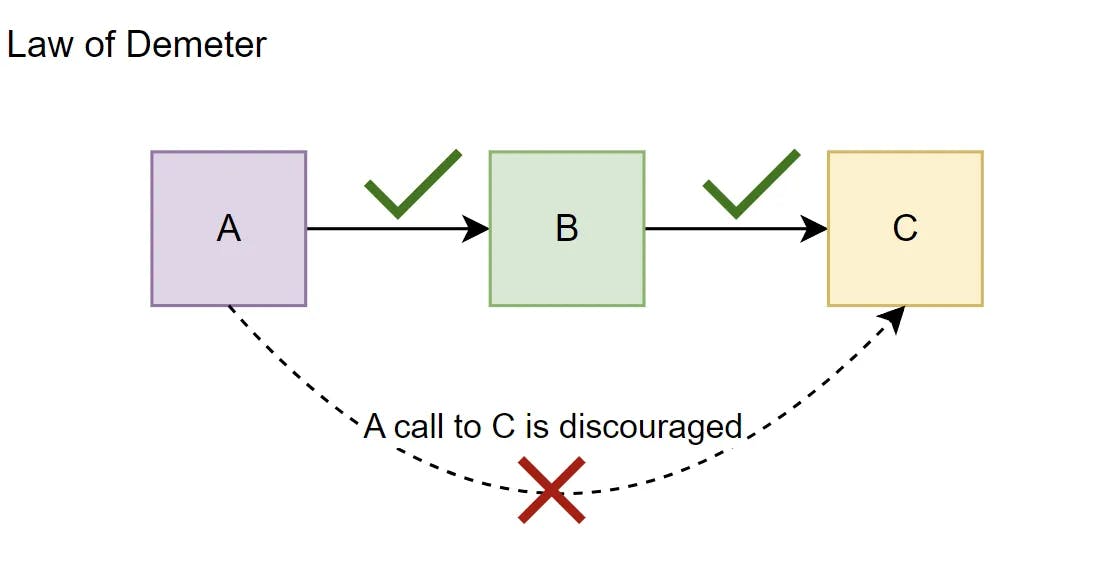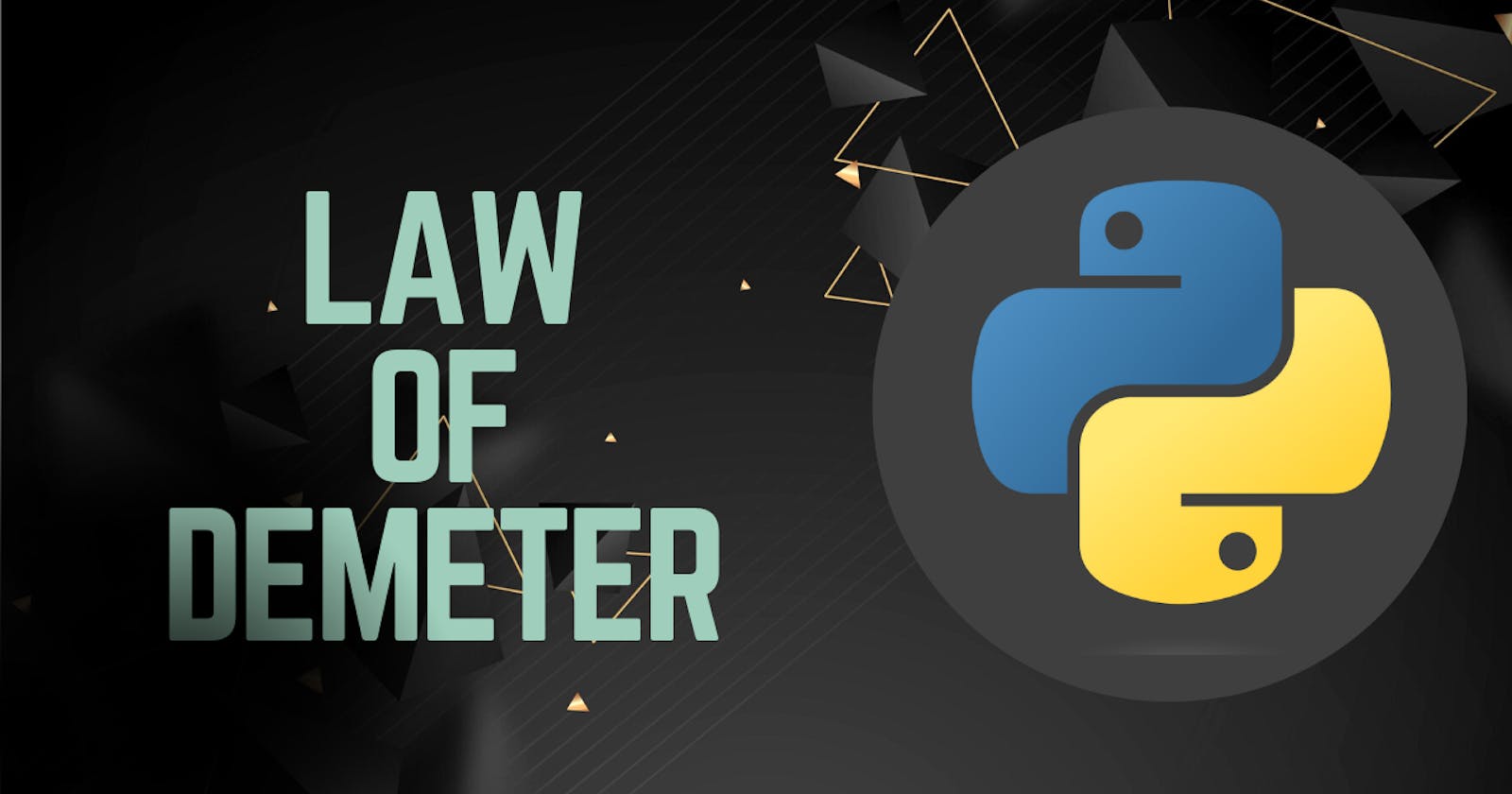In the vast realm of Python programming, adhering to best practices is essential for crafting maintainable and clean code. One such principle, the Law of Demeter, plays a crucial role in ensuring code modularity and reducing dependencies between components. However, violations of this law are not uncommon, especially when working with complex frameworks like Django ORM. In this blog, we'll embark on a journey to explore the Law of Demeter, unravel its violations, delve into side effects, examine associated antipatterns, and discover effective solutions to write cleaner and more maintainable Python code.
Understanding the Law of Demeter:

The Law of Demeter, also known as the principle of least knowledge, encourages encapsulation and loose coupling by restricting the interaction between objects. Simply put, a method in an object should only call methods of:
Itself.
Its parameters.
Objects it creates.
Its direct component objects.
Violations of the Law of Demeter in Python:
Let's consider a scenario where we have a Blog class that contains a list of Post objects. A common violation might occur when trying to access the author of a post directly from the Blog instance:
class Blog:
def __init__(self):
self.posts = []
class Post:
def __init__(self, author):
self.author = author
# Violation of Demeter
blog = Blog()
author = blog.posts[0].author
This violates the Law of Demeter, as the Blog class is directly accessing the author property of a Post object, creating a tight coupling between the two.
Side Effects and Antipatterns:
Violations of the Law of Demeter can lead to several side effects and antipatterns, including:
Brittle Code: Tight coupling makes the code more prone to breaking when changes are made to the structure of dependent classes.
Maintenance Challenges: Understanding and maintaining code becomes challenging due to the interconnected dependencies.
Reduced Testability: Testing becomes more complex as unit tests may need to be updated frequently with changes in the interconnected classes.
Django ORM and Demeter:
Django ORM, being a powerful tool for database interactions, introduces its own set of challenges regarding the Law of Demeter. Consider a scenario where a Blog model has a foreign key relationship with a User model:
class Blog(models.Model):
author = models.ForeignKey(User, on_delete=models.CASCADE)
Fetching the author's email directly from the Blog instance violates the Law of Demeter:
# Demeter Violation with Django ORM
blog = Blog.objects.get(pk=1)
author_email = blog.author.email
Overcoming Demeter Violations in Python:
To overcome Demeter violations, let's explore examples for each solution to overcome Demeter violations in Python.
1. Introduce Encapsulation:
Encapsulate the behavior within the respective classes, exposing only necessary interfaces.
class Blog:
def __init__(self):
self.posts = []
def get_author_email(self, post_index):
# Encapsulate the behavior within the Blog class
if post_index < len(self.posts):
return self.posts[post_index].get_author_email()
return None
class Post:
def __init__(self, author):
self.author = author
def get_author_email(self):
return self.author.email
# Usage
blog = Blog()
# Instead of direct access, use encapsulated method
author_email = blog.get_author_email(0)
2. Use Accessor Methods:
Create accessor methods within classes to access properties indirectly, encapsulating the internal structure.
class Blog:
def __init__(self):
self.posts = []
class Post:
def __init__(self, author):
self.author = author
def get_author_email(self):
return self.author.email
# Usage
blog = Blog()
# Use accessor method to get author email
author_email = blog.posts[0].get_author_email()
3. Delegate Responsibility:
Encourage objects to delegate tasks to other objects, minimizing direct dependencies.
class Blog:
def __init__(self):
self.posts = []
def get_author_email(self, post):
# Delegate the responsibility to the Post class
return post.get_author_email()
class Post:
def __init__(self, author):
self.author = author
def get_author_email(self):
return self.author.email
# Usage
blog = Blog()
post = blog.posts[0]
# Delegate responsibility to get author email
author_email = blog.get_author_email(post)
These examples showcase how to implement each solution to overcome Demeter violations in Python. By choosing the appropriate solution based on the context of your application, you can foster cleaner, more maintainable code while adhering to the Law of Demeter.
Conclusion
Understanding and applying the Law of Demeter is crucial for writing clean and maintainable Python code. With diligent adherence to this principle, along with the outlined solutions, developers can navigate through complex codebases, foster modularity, and build robust applications, even in the dynamic world of Django ORM. By weaving these practices into our coding endeavors, we pave the way for scalable and resilient software systems.

